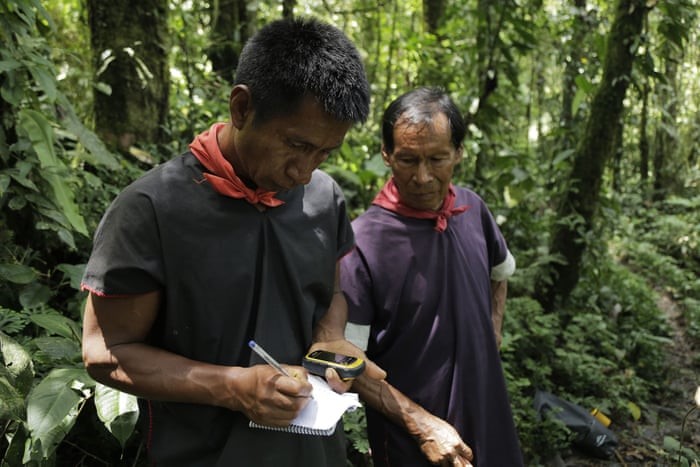
Strengthening community-based environmental monitoring in the Amazon

Context
The Amazon region in Ecuador and Peru has recently witnessed a surge in hydrocarbon extraction, triggering adverse environmental and public health outcomes. However, regulatory frameworks and the capacity to continuously monitor, detect and manage the impact of hydrocarbon extraction have been insufficient in both countries.
In 2015, 3ie supported the lead researcher at the International Institute of Social Studies to work with the University of San Francisco at Quito and local civil society groups the Union of People Affected by Texaco and the Amazon Defense Coalition to evaluate the impacts of technology-assisted community monitoring on detecting environmental liabilities, reporting to state authorities and coverage by media.
The intervention equipped community teams with open-source apps, smartphones, drones, and user-friendly interfaces with routines and protocols for the collection, storage, organisation and transfer of monitoring information in standard formats.
This enhanced monitoring package sought to equip the communities to detect oil spills early using drones; document the spills with the help of global positioning system information and smartphone apps; and transmit the information to the headquarters of indigenous organisations, state agencies, oil companies and mass media through cloud-based synchronisation and transmission.
Evidence
The evaluation showed that community-based, high-tech environmental monitoring of extractive industries, especially in remote, hard-to-reach areas, can be an effective tool to increase transparency. The treatment led to an increase in the detection of environmental liabilities such as oil spills, as well as an increase in reporting to state authorities and by the media. The treatment increases the number of detections by approximately one detection every three months by each team, and the number of liabilities reported to the state by one report per year per team.
Monitoring teams detected a total of 367 environmental liabilities – 212 in Ecuador and 155 in Peru. On average, each team detected 0.6 liabilities per month, slightly more than one event every other month. Detection was more common in Ecuador than in Peru, and more common amongst treatment teams compared to control teams. Although reporting by the media increased in relation to the average number of reports, this was mostly because media reporting was low before the intervention.
Evidence impacts
Type of impact: Change policies or programmes
Decision makers use findings from an evaluation or systematic review to adjust their programming to fix targeting, cash transfer amounts, training modules or other factors that inhibit the policy or programme’s ability to achieve its intended impacts.
This is one of 3ie’s seven types of evidence use. Impact types are based on what we find in the monitoring data for an evaluation or review. Due to the nature of evidence-informed decision-making and action, 3ie looks for verifiable contributions that our evidence makes, not attribution.
Read our complete evidence impact typology and verification approach here.
Close windowBased on evaluation findings, the researchers recommended that policymakers create the political and legal mechanisms required to ensure the safety and effectiveness of the community-based monitors. Informed by the evaluation evidence, Ecuador’s lawmakers revised the draft of a new law, Ley Orgánica para la Planificación Integral de la Circunscripción Territorial Especial Amazónica, to include community monitoring of environmental degradation in the Amazon. In 2017, the researchers and implementers presented monitoring and qualitative data from the evaluation to the committee drafting the law, and made the case for recognising community monitoring as a just and effective mechanism to monitor environmental degradation. Following the presentation, the 2018 law regulating economic activity, particularly the extractive industry, in the Amazon territory included an article on community-based environmental monitoring.
Suggested citation
International Initiative for Impact Evaluation (3ie), 2020. Strengthening community-based environmental monitoring in the Amazon [online summary], Evidence Impact Summaries. New Delhi: 3ie.
Related
This blog records the presentation made by Amazon Defense Coalition using evaluation data to argue for legal guarantees that recognise community environmental monitoring activities as a right of the inhabitants of the territory.
Evidence impact summaries aim to demonstrate and encourage the use of evidence to inform programming and policymaking. These reflect the information available to 3ie at the time of posting. Since several factors influence policymaking, the summaries highlight contributions of evidence rather than endorsing a policy or decision or claiming that it can be attributed solely to evidence. If you have any suggestions or updates to improve this summary, please write to influence@3ieimpact.org